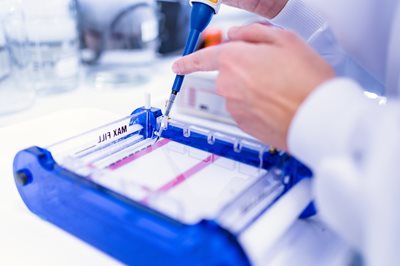Yeast Identification Services
The NCYC provides a full service for identifying yeasts using either; standard chemotaxonomic analysis for comprehensive phenotypic profiling, or DNA sequencing for rapid and accurate species identification.
DNA Sequencing
DNA sequence analysis, of the variable D1/D2 region of the nuclear-encoded 26S ribosomal DNA (26S rDNA), is recommended for rapid and accurate species identification. This DNA-based method can be used reliably to identify commonly encountered food and beverage spoilage species (e.g. Dekkera, Saccharomyces and Zygosaccharomyces), environmental isolates as well as putative new species. Species identification typically takes less than 1 week from receipt of a culture (if pure), and a full report including the derived D1/D2 sequence is supplied upon completion.
For further details of this service, please email us at
ncyc@ncyc.co.uk
Chemotaxonomic Analysis
Chemotaxonomic analysis provides a detailed morphological and physiological characterisation of the strain and gives an insight into the general biological properties of the yeast. Phenotypic characterisation is a key prerequisite in the taxonomic description of all new yeast species and the NCYC can assist with this if required or upon request. The standard chemotaxonomic tests used by the NCYC are as described in ‘The Yeasts, A Taxonomic Study’, Fifth edition (eds. C. P. Kurtzman, J. W. Fell & T. Boekhout; Elsevier, 2011). Tests typically take 3-4 weeks to complete and a full report is supplied upon completion.
Cultures and strain purity
All cultures sent for identification should, ideally, be pure and should be sent securely packed, preferably on agar slopes. Culture purity is routinely assessed by both visual and microscopic examination but can also be determined by DNA-based methods if required or upon request. Individual strains can be isolated from mixed cultures if necessary, although this will require additional time and also incur extra expense.
Please email please email us at
ncyc@ncyc.co.uk for further details before sending cultures to us for identification.
All identification data are kept strictly confidential, and cultures submitted for identification will not be deposited into our open collection without prior permission being granted from the depositor.